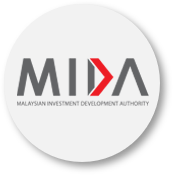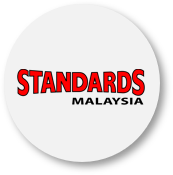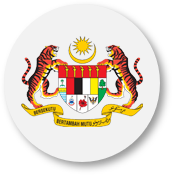/What_is_the_ART2.jpg)
The Agreement on Reciprocal Trade (ART) is a bilateral trade arrangement between Malaysia and the United States designed to ensure fair, balanced, and mutually beneficial trade relations between the two countries.
It was officially signed on 26 October 2025 by YAB Prime Minister of Malaysia and The Honorable President of The United States of America.
Purpose of the Agreement
The ART aims to:
-
Stabilize trade relations between Malaysia and the U.S., especially after the U.S. introduced higher tariffs on countries with large trade surpluses.
-
Protect Malaysian exports and jobs by securing continued access to the U.S. market — Malaysia’s third-largest trading partner and a key destination for electrical & electronics (E&E), palm oil, rubber, and manufactured goods.
-
Promote fair treatment — ensuring that both sides apply tariffs, market access, and trade rules in a reciprocal (balanced) way.
How It Works
Unlike a full Free Trade Agreement (FTA), the ART is more targeted and flexible. It focuses on:
-
Tariff adjustments: Reducing or stabilizing import/export tariffs to prevent sudden hikes.
-
Sectoral cooperation: Covering specific industries like semiconductors, green technology, agriculture, and pharmaceuticals.
-
Regulatory cooperation: Aligning standards (where possible) without compromising national laws or sovereignty.
-
Mutual market access: Encouraging business and investment flows in both directions.
Why It Matters
For Malaysia:
-
It secures better trade terms amid rising global protectionism.
-
It strengthens investor confidence by showing that Malaysia can negotiate strategic deals with major economies.
-
It supports Malaysia’s New Industrial Master Plan 2030 (NIMP 2030) — especially in positioning Malaysia as a trusted global manufacturing and supply-chain hub.
AGREEMENT BETWEEN MALAYSIA AND THE UNITED STATES OF AMERICA ON RECIPROCAL TRADE
AGREEMENT BETWEEN MALAYSIA AND THE UNITED STATES OF AMERICA ON RECIPROCAL TRADE
Preamble
The Government of the United States of America (“United States”) and the Government of Malaysia (“Malaysia”) (hereinafter referred to individually as “a Party” and collectively as
“the Parties”),
EMPHASIZING their shared values, including their shared commitment to sovereignty, economic prosperity, and resilient supply chains;
RECOGNIZING the bonds of friendship and cooperation between them, in particular in their trade and investment relations, as reflected in the Trade and Investment Framework Agreement between the Government of the United States and the Government of Malaysia;
INTENDING to enhance reciprocity in their bilateral trade relationship by addressing tariff and non-tariff barriers; and
SEEKING to strengthen their commercial relationship through increased alignment on national and regional economic security matters,
HAVE AGREED as follows:
Section 1. Tariffs and Quotas
Article 1.1: Tariffs
1. Malaysia shall apply a rate of customs duty1 on originating goods of the United States as set out in Schedule 1 to Annex I.
2. The United States shall apply a revised reciprocal tariff rate on originating goods of Malaysia as set out in Schedule 2 of Annex I.
1Customs duty includes any duty or charge of any kind imposed on or in connection with the importation of a good, and any surtax or surcharge imposed in connection with such importation, but does not include any─
(a) charge equivalent to an internal tax imposed consistently with Article III:2 of GATT 1994;
(b) fee or other charge in connection with the importation commensurate with the cost of services rendered; or
(c) antidumping or countervailing duty applied pursuant to a Party’s law.
Article 1.2: Quantitative Restrictions
Malaysia shall not impose quantitative restrictions on imports of originating goods of the United States except in accordance with the General Agreement on Tariffs and Trade 1994 (GATT 1994).
Section 2. Non-Tariff Barriers and Related Matters
Article 2.1: Import Licensing
Malaysia shall not apply import licensing2 to U.S. originating goods in a manner that restricts the importation of such goods. Malaysia shall ensure that any non-automatic import licensing that it applies is applied only to administer an underlying measure, and in a manner that is transparent, nondiscriminatory, and not unduly burdensome, and that does not reduce the competitiveness of U.S. exports.
Article 2.2: Technical Regulations, Standards, and Conformity Assessment
1. The Parties recognize their existing rights and obligations with respect to each other under the World Trade Organization (WTO) Agreement on Technical Barriers to Trade. Malaysia shall allow U.S. originating goods that comply with applicable U.S. or international standards, U.S. technical regulations, or U.S. or international conformity assessment procedures to enter its territory without additional conformity assessment requirements. In doing so─
(a) Malaysia shall accord to the conformity assessment bodies of the United States treatment no less favorable than that it accords to its own bodies; and
(b) Malaysia shall facilitate the acceptance of U.S. compliance procedures for goods that are not subject to third-party conformity assessment in the U.S. regulatory framework.
2. Malaysia shall ensure that technical regulations, standards, and conformity assessment procedures are applied in a non-discriminatory manner and do not operate as disguised restrictions on bilateral trade, and shall remove existing technical barriers to trade in areas that undermine reciprocity, including requirements for duplicative or unnecessary testing or conformity assessment.
2For greater certainty, “import licensing”, “automatic import licensing”, and “non-automatic import licensing” have the same meanings as provided in the WTO Agreement on Import Licensing Procedures.
Article 2.3: Agriculture
Malaysia shall provide non-discriminatory or preferential market access for U.S. agricultural goods as set forth in this Agreement. In doing so─
(a) Malaysia shall ensure that its sanitary and phytosanitary (SPS) measures are science- and risk-based and do not operate as disguised restrictions on bilateral trade, and shall remove unjustified SPS barriers in areas that undermine reciprocity.
(b) Malaysia shall not enter into agreements or understandings with third countries that include non-scientific, discriminatory, or preferential technical standards or third-country SPS measures that are incompatible with U.S. or international standards; or otherwise disadvantage U.S. exports.
Article 2.4: Geographical Indications
Malaysia shall ensure transparency and fairness with respect to the protection or recognition3 of geographical indications, including pursuant to an international agreement to which Malaysia is a party. Malaysia shall only protect or recognize a term that identifies a good as a geographical indication where there is a given quality, reputation, or other characteristic of the good that is essentially attributable to its geographical origin.
Article 2.5: Cheese and Meat Terms
Malaysia shall not restrict U.S. market access due to the mere use of the individual cheese and meat terms listed in Annex II.
Article 2.6: Intellectual Property
Malaysia shall provide a robust standard of protection for intellectual property.4 Malaysia shall provide effective systems for civil, criminal, and border enforcement of intellectual property rights and shall ensure that such systems combat and deter the infringement or misappropriation of intellectual property, including in the online environment. Malaysia shall prioritize and shall take effective criminal and border enforcement actions against copyright and trademark infringements.
3For greater certainty, Malaysia shall not protect or recognize a predetermined list of geographical indications.
4For purposes of this Agreement, “intellectual property” refers to all categories of intellectual property that are the subject of Sections 1 through 7 of Part II of the WTO Agreement on Trade-Related Aspects of Intellectual Property Rights. Further, for purposes of this Agreement, the protection of intellectual property includes matters related to technological protection measures and rights management information.
Article 2.7: Services
This Agreement incorporates, mutatis mutandis, any commitment concerning trade in services that Malaysia has made or hereafter makes in a trade agreement to any third country, jurisdiction, or economy. This Article shall not apply to any commitment to the Association of Southeast Asian Nations (ASEAN) under any ASEAN trade or investment agreement.
Article 2.8: Good Regulatory Practices
Malaysia shall adopt and implement good regulatory practices as set out in Article 2.21 of Annex III that ensure greater transparency, predictability, and participation throughout the regulatory lifecycle.
Article 2.9: Labor
1. Malaysia shall adopt and implement a prohibition on the importation of goods mined, produced, or manufactured wholly or in part by forced or compulsory labor. Malaysia may acknowledge U.S. government determinations on entities under Section 307 of the Tariff Act of 1930 and shall take appropriate action to prohibit importation of goods from those companies. The Parties shall cooperate by sharing best practices on the development and enforcement of forced labor import prohibitions, as appropriate. Malaysia shall implement the obligations in this paragraph within two years of the date of entry into force of this Agreement.
2. Malaysia shall protect internationally recognized labor rights.5 This includes by adopting or maintaining such rights in its domestic law and practice, and effectively enforcing its labor laws, including by creating or maintaining necessary institutions to protect labor rights. Malaysia shall establish and effectively apply appropriate legal sanctions for violations of those laws. Malaysia shall not weaken or reduce the protections in its labor laws and shall address any such weakening or reduction that has been made to encourage trade or investment to date.6 In addition, Malaysia shall address issues related to labor rights that contribute to non-reciprocal trade.
Article 2.10: Environment
Malaysia shall adopt and maintain environmental protections, effectively enforce its environmental laws, uphold or institute, as necessary, strong environmental governance structures, and address environment-related issues that contribute to non-reciprocal trade.
5For purposes of this paragraph, internationally recognized labor rights include those in the International Labor Organization (ILO) Declaration on Fundamental Principles and Rights at Work and its Follow-Up (1998), as amended in 2022; a prohibition on the worst forms of child labor; and acceptable conditions of work with respect to minimum wages and hours of work.
6 For greater certainty, the scope of this paragraph includes special economic zones, including export processing zones, or sector-specific laws or regulations that have lesser labor protections than the overall economy.
Article 2.11: Customs and Trade Facilitation
Malaysia shall facilitate technology solutions that allow for full pre-arrival processing, paperless trade, and digitalized procedures for the cross-border movement of goods.
Article 2.12: Border Measures and Taxes
1. Malaysia shall coordinate and endeavor to align its border measures applicable to third-country imports with relevant border measures that the United States may adopt in the future, such as border-adjusted tax measures or other border measures, to combat regulatory arbitrage that would disadvantage U.S. workers and businesses.
2. No Party shall contest at the WTO a measure adopted by the other Party to rebate or to refrain from imposing direct taxes in relation to exports from that Party.
3. Malaysia shall not impose value-added taxes that discriminate against U.S. companies in law or in fact.
Section 3. Digital Trade and Technology
Article 3.1: Digital Services Tax
Malaysia shall not impose digital services taxes, or similar taxes, that discriminate against U.S. companies in law or in fact.
Article 3.2: Facilitation of Digital Trade
Malaysia shall facilitate digital trade with the United States, including by─
(a) refraining from measures that discriminate against U.S. digital services or U.S. products distributed digitally;7
(b) ensuring the cross-border transfer of data by electronic means across trusted borders, with appropriate protections, for the conduct of business; and
(c) endeavoring to collaborate with the United States to address cybersecurity challenges and matters of mutual interest, which may include exchanging information on threats and best practices, promoting the use of relevant international standards, and understanding capacity-building activities.
7For greater certainty, Malaysia has the right to regulate in the public interest.
Article 3.3: Digital Trade Agreements
Malaysia shall consult with the United States before entering into a new digital trade agreement with another country that jeopardizes essential U.S. interests.
Article 3.4: Market Entry Conditions
1. Malaysia shall not impose any condition or enforce any undertaking requiring U.S. persons to transfer or provide access to a particular technology, production process, source code, or other proprietary knowledge, or to purchase, utilize, or accord a preference to a particular technology, as a condition for doing business in its territory.
2. Nothing in this Article shall─
(a) preclude the inclusion or implementation of terms and conditions related to the provision of source code in commercially negotiated contracts;
(b) preclude a Party from requiring that access be provided to software used for critical infrastructure, to the extent required to ensure the effective functioning of critical infrastructure, subject to safeguards against unauthorized disclosure;
(c) preclude a Party from requiring the modification of source code of software necessary for that software to comply with laws or regulations which are not inconsistent with this Agreement;
(d) apply to government procurement;
(e) preclude a regulatory body or judicial authority of a Party from requiring a person of another Party to preserve and make available the source code of software, or an algorithm expressed in that source code, to the regulatory body for a specific investigation, inspection, examination, enforcement action, or judicial proceeding, subject to safeguards against unauthorized disclosure; or
(f) apply to a Party’s measures adopted or maintained for prudential reasons.8
Article 3.5: Customs Duties on Electronic Transmissions
Each Party shall not impose customs duties on electronic transmissions, including content transmitted electronically, and shall support multilateral adoption of a permanent moratorium on customs duties on electronic transmissions at the WTO. For greater certainty, this Article does not
8The Parties understand that the term “prudential reasons” includes the maintenance of the safety, soundness, and integrity or financial responsibility of individual financial service suppliers as well as the safety and financial and operational integrity of payment and clearing systems.
preclude a Party from imposing internal taxes, fees, or other charges on electronic transmissions, including content transmitted electronically, provided that those taxes, fees, or charges are imposed in a manner consistent with Articles I and III of the GATT 1994 or Articles II and XVII of the WTO General Agreement on Trade in Services (GATS).
Section 4. Rules of Origin
Article 4.1: General Provision
The Parties intend for the benefits of this Agreement to accrue substantially to them and their nationals. If benefits of this Agreement are accruing substantially to third countries or third-country nationals, a Party may establish rules of origin necessary to achieve the Parties’ intention for this Agreement.
Section 5. Economic and National Security
Article 5.1: Complementary Actions
1. If the United States imposes a customs duty, quota, prohibition, fee, charge, or other import restriction on a good or service of a third country and considers that such measure is relevant to protecting the economic or national security of the United States, the United States intends to notify such measure to Malaysia for the purpose of economic and national security alignment. Upon receiving such notification from the United States, Malaysia shall adopt or maintain a measure with equivalent restrictive effect as the measure adopted by the United States or agree to a timeline for implementation that is acceptable to both Parties, to address a shared economic or national security concern, guided by principles of goodwill and a shared commitment to enhancing bilateral relations between the United States and Malaysia.
2. Malaysia shall adopt and implement measures, in accordance with its domestic laws and regulations, to address unfair practices of companies owned or controlled by third countries operating in Malaysia’s jurisdiction that result in─
(a) the export of below-market price goods to the United States;
(b) increased exports of such goods to the United States;
(c) a reduction in U.S. exports to Malaysia; or
(d) a reduction in U.S. exports to third-country markets.
3. Malaysia shall adopt, through its domestic regulatory process, similar measures of equivalent restrictive effect as those adopted by the United States to encourage shipbuilding and shipping by market economy countries. The Parties shall discuss the structure and effect of such measures, recognizing the Parties’ commitment to address shared economic or national security concerns in the shipbuilding and shipping sector.
Article 5.2: Export Controls, Sanctions, Investment Security, and Related Matters
1. Malaysia shall, through its domestic regulatory process, cooperate with the United States to regulate the trade in national security-sensitive technologies and goods through existing multilateral export control regimes, align with all unilateral export controls in force by the United States, and ensure that its companies do not backfill or undermine these controls.
2. Malaysia shall cooperate with the United States, in a manner consistent with applicable requirements of domestic laws and regulations, with a view to restricting transactions of its nationals with individuals and entities included in the U.S. Department of Commerce Bureau of Industry and Security Entity List (Supplement 4 of Part 744 of the Export Administration Regulations), as well as the U.S. Department of the Treasury Office of Foreign Assets Control Lists of Specially Designated Nationals and Blocked Persons List (SDN List) and the Non-SDN Consolidated Sanctions List.
3. Malaysia shall explore the establishment of a mechanism to review inbound investment for national security risks, including in connection with critical minerals and critical infrastructure, consistent with widely accepted international best practices, and shall cooperate with the United States on matters related to investment security.
4. If the United States determines that Malaysia is cooperating to address shared national and economic security issues, the United States may take such cooperation into account in administering its domestic laws and regulations pertaining to export controls, investment reviews, and other measures.
Article 5.3: Other Measures
1. The United States shall work with Malaysia to streamline and enhance defense trade.
2. Malaysia shall, in accordance with its domestic laws and regulations, adopt and effectively enforce measures to combat transshipment and other practices to evade or circumvent duties applied by the United States. Malaysia shall enter into a duty evasion cooperation agreement with the United States.
3. If Malaysia enters into a new bilateral free trade agreement or preferential economic agreement with a country that jeopardizes essential U.S. interests, the United States may, if consultations with Malaysia fail to resolve its concerns, terminate this Agreement and reimpose the applicable reciprocal tariff rate set forth in Executive Order 14257 of April 2, 2025.
4. Malaysia shall not purchase any nuclear reactors, fuel rods, or enriched uranium from certain countries, except where there are no alternative suppliers on comparable terms and conditions.
Section 6. Commercial Considerations and Opportunities
Article 6.1: Investment
1. With respect to the central level of government, Malaysia shall, in accordance with its laws and regulations, facilitate and promote investment by the United States in sectors including critical minerals, energy resources, power generation, telecommunications, transportation, and infrastructure services.
2. The United States shall work through U.S. institutions such as the Export-Import Bank of the United States (EXIM Bank) and the U.S. International Development Finance Corporation (DFC), if eligible, to consider supporting investment financing in critical sectors in Malaysia in collaboration with U.S. private sector partners, consistent with applicable law.
3. Malaysia shall facilitate, to the extent practicable, approximately USD70 billion in job-creating investment, including greenfield investment, in the United States over the next 10 years.
Article 6.2: Commercial Considerations
1. Malaysia shall ensure that its State-Owned or -Controlled Enterprises (SOEs) operating in its market, when engaging in commercial activities─
(a) act in accordance with commercial considerations in their purchase or sale of goods or services; and
(b) refrain from discriminating against U.S. goods or services.
Malaysia shall refrain from providing non-commercial assistance or otherwise subsidizing its goods-producing SOEs, except for the achievement of their public service obligations. Malaysia shall ensure a level playing field for U.S. companies in Malaysia’s market with respect to SOEs of third countries.
2. Upon the written request of the United States, Malaysia shall provide non-confidential9 information regarding all forms of non-commercial assistance or subsidies that it provides to a manufacturing enterprise in its territory, and shall take action to address the distortive impacts of
9For purposes of this paragraph, “non-confidential information” means information other than confidential information, and “confidential information” means information that relates to a specific enterprise and is protected under the laws and regulations of Malaysia.
those subsidies and support mechanisms that may materially affect bilateral trade and investment with the United States.
Article 6.3: Purchases
Malaysia intends to purchase, or to facilitate the purchase by Malaysian companies, of originating goods of United States, as set out in Annex IV.
Section 7. Implementation, Enforcement, and Final Provisions
Article 7.1: Recognition of Existing Rights and Obligations
The Parties recognize their rights and obligations under the WTO agreements, including provisions of those agreements that reflect a WTO member’s sovereign rights to protect essential security, address unfair trade practices, and pursue other public policy objectives.
Article 7.2: Entry into Force
This Agreement shall enter into force 60 days after the date on which the Parties have exchanged written notifications certifying completion of their applicable legal procedures or on such other date as the Parties may agree.
Article 7.3: Modifications and Amendments
Either Party may request reasonable modifications to any provision of this Agreement. The other Party shall consider such modifications in good faith. The Parties may agree, in writing, to amend this Agreement. An amendment to this Agreement shall enter into force 60 days after the date on which the Parties exchange written notification of the completion of their respective applicable legal procedures or on such other date as the Parties may agree. An amendment shall not affect the rights and obligations of the Parties provided for under this Agreement until the amendment enters into force.
Article 7.4: Enforcement
1. Nothing in this Agreement shall constrain, or otherwise prevent, a Party from imposing additional tariffs to remedy unfair trade practices, to address import surges, to protect its economic or national security, or for other similar reasons consistent with its domestic law.
2. If a Party considers that the other Party has not complied with a provision of this Agreement, the Party may review the terms of this Agreement and take action in accordance with applicable domestic law. A Party shall, when practicable, with a view to finding a mutually satisfactory solution, notify and seek consultations in good faith with the other Party prior to taking any action.
Article 7.5: Termination
Either Party may terminate this Agreement by written notification to the other Party. Termination shall take effect 180 days after the date of the notification.
Article 7.6: Annexes, Appendices, and Footnotes
The annexes, appendices, and footnotes to this Agreement constitute an integral part of this Agreement.
IN WITNESS WHEREOF the undersigned, being duly authorized thereto by their respective Governments, have signed this Agreement.
DONE in duplicate at Kuala Lumpur, this 26th of October, 2025.
|
__________________________________ FOR THE GOVERNMENT OF THE UNITED STATES OF AMERICA |
__________________________________ FOR THE GOVERNMENT OF MALAYSIA |
Schedules 1 and Schedule 2 and Annexes for the Malaysia-U.S. Agreement on Reciprocal Trade
Click here to view the PDF document. The file will open in a new tab.
JOINT STATEMENT ON MALAYSIA-UNITED STATES AGREEMENT ON RECIPROCAL TRADE
JOINT STATEMENT ON UNITED STATES-MALAYSIA AGREEMENT ON RECIPROCAL TRADE
-----------------
The Government of the United States of America (“the United States”) and the Government of Malaysia have reached agreement on an Agreement on Reciprocal Trade (“the Agreement”) to strengthen our bilateral economic relationship, which will provide both countries’ exporters unprecedented access to each other’s markets. The Agreement will build upon our longstanding economic relationship, including the United States-Malaysia Trade Investment Framework Agreement signed in 2004.
Key terms of the Agreement on Reciprocal Trade between the United States and Malaysia include:
- Malaysia has committed to provide significant preferential market access for U.S. industrial goods exports, including chemicals, machinery and electrical equipment, metals, and passenger vehicles, and for U.S. agricultural exports including dairy, horticultural products, poultry, processed products, beverages, pork, rice, and fuel ethanol.
- The United States has committed to maintain at 19 percent the reciprocal tariffs first set forth in Executive Order 14257 of April 2, 2025, as amended, on originating goods of Malaysia, and has identified products from the list set out in Annex III to Executive Order 14346 of September 5, 2025, Potential Tariff Adjustments for Aligned Partners, to receive a zero percent reciprocal tariff rate.
- Malaysia has committed to address non-tariff barriers that affect bilateral trade in priority industrial areas. Malaysia has committed to accepting U.S. manufactured vehicles built to U.S. motor vehicle safety and emissions standards; streamlining import licenses for U.S. alloy steel and pipe products and steel-containing goods; streamlining halal requirements for products including cosmetics, pharmaceuticals, and medical devices; and addressing U.S. concerns with conformity assessment procedures.
- Malaysia has committed to address and prevent non-tariff barriers to U.S. food and agricultural products in the Malaysian market, including by accepting currently agreed certificates issued by U.S. regulatory authorities; streamlining halal and facility registration requirements to facilitate imports of U.S. food and agricultural products; and implementation of regionalization of the United States for animal diseases.
- Malaysia has committed to adopt and maintain high levels of environmental protection and to effectively enforce its environmental laws, including by taking measures to address illegal logging, fisheries subsidies, illegal, unreported, and unregulated fishing, and illegal wildlife trade.
- Malaysia has committed to increasing enforcement against notorious markets for counterfeiting and piracy.
- To protect internationally recognized labor rights, Malaysia has made commitments on preventing forced labor and effectively identifying and addressing labor law violations in sectors with a high-risk of forced labor and child labor.
- The United States and Malaysia have finalized commitments by Malaysia to address barriers impacting digital trade, services, and investment. Malaysia has committed to refrain from imposing digital services taxes that discriminate against U.S. companies or requiring U.S. social media platforms and cloud service providers to pay into Malaysia’s domestic fund; ensure the transfer of data across trusted borders, with appropriate protections, for the conduct of business; support a permanent moratorium on customs duties on electronic transmissions at the World Trade Organization; and remove broadcasting terrestrial airtime restrictions on U.S. programming.
- The United States and Malaysia have finalized commitments to address intellectual property protection and enforcement, customs and trade facilitation, good regulatory practices, and distortionary behaviors of state-owned enterprises.
- The United States and Malaysia have committed to strengthening economic and national security cooperation and to enhancing supply chain resilience and innovation, addressing duty evasion, and cooperating on investment security and export controls.
- Malaysia has committed to refrain from banning, or imposing quotas on, exports to the United States of critical minerals or rare earth elements. Malaysia has committed to the expedient development of its critical minerals and rare earths sectors in partnership with U.S. companies, including granting extended operating licenses to create certainty for businesses to increase production capacity. Malaysia has committed to ensure no restrictions are imposed on the sale of rare earth magnets to U.S. companies.
- In addition, the United States and Malaysia take note of recent and forthcoming commercial deals between U.S. and Malaysian companies, including:
- Procurement of 30 aircraft plus a purchase option for 30 additional aircraft.
- Purchase of semiconductors, aerospace components, and data center equipment with an estimated value of USD150 billion.
- Purchase of up to 5 million tonnes per annum (MTPA) of Liquified Natural Gas estimated at up to USD3.4 billion per year.
- Purchase of coal and telecommunication products and services valued at USD204.10 million.
- Capital fund investments in the United States of USD70 billion.
The United States may positively consider the effect that the Agreement has on national security, including taking the Agreement into consideration when taking trade action under section 232 of the Trade Expansion Act of 1962, as amended (19 U.S.C. 1862).
Additionally, to support a fair economic relationship between Malaysia and the United States, the U.S. Department of the Treasury and Bank Negara Malaysia are in discussion to finalize their mutual understanding on currency policy.
In the coming weeks, the United States and Malaysia will undertake domestic formalities in advance of the Agreement entering into force.
Click the image above to open the
Frequently Asked Questions About The Malaysia-USA’s Agreement On Reciprocal Trade in a new tab.













 Home
Home
/MITI_ART_FAQ_eng_banner2.jpg)




















